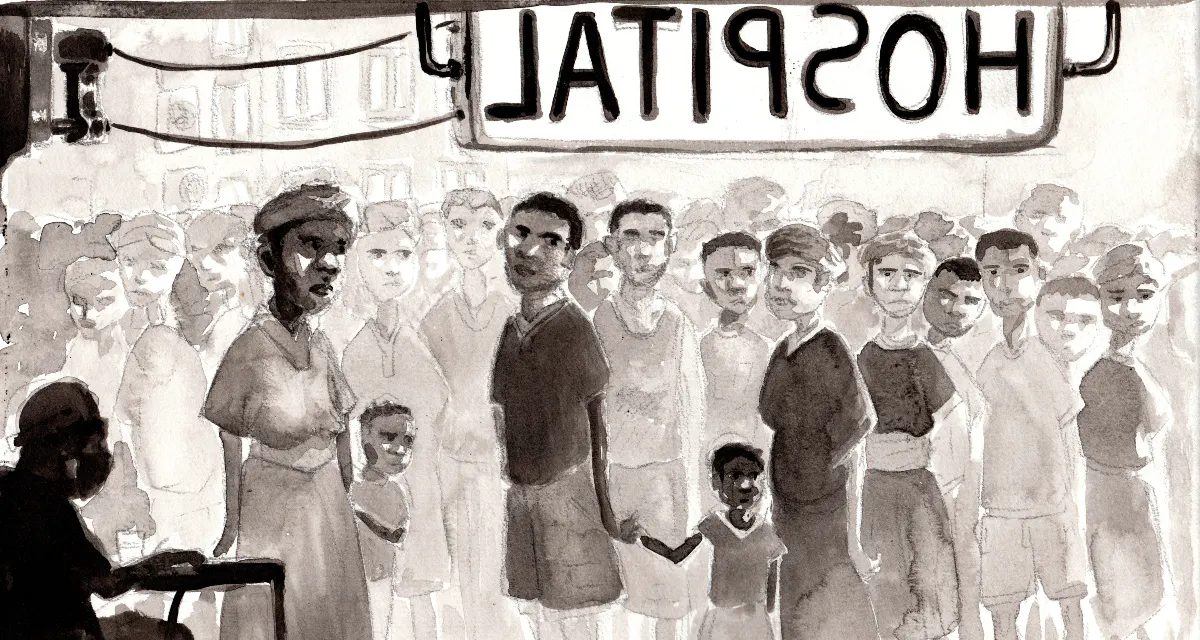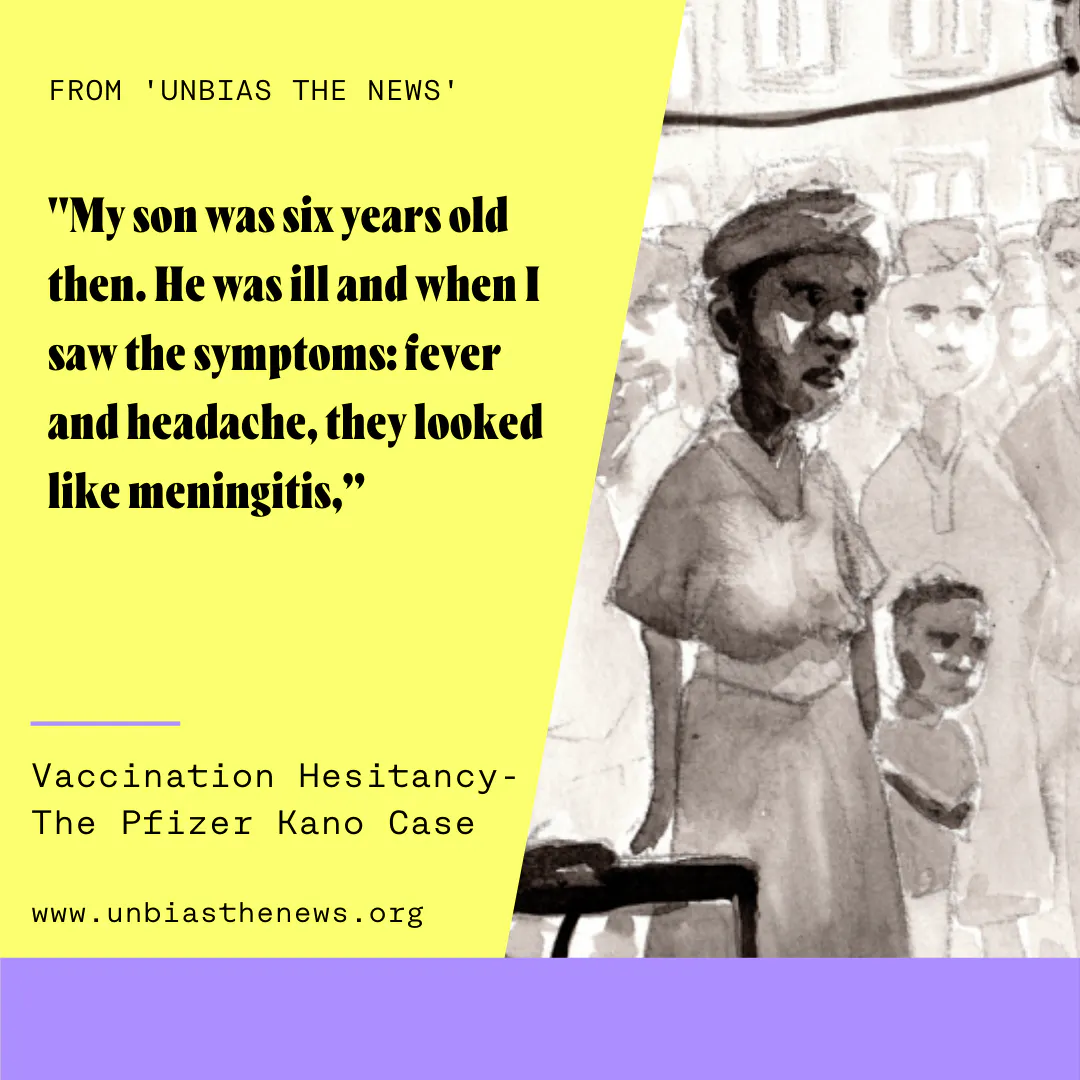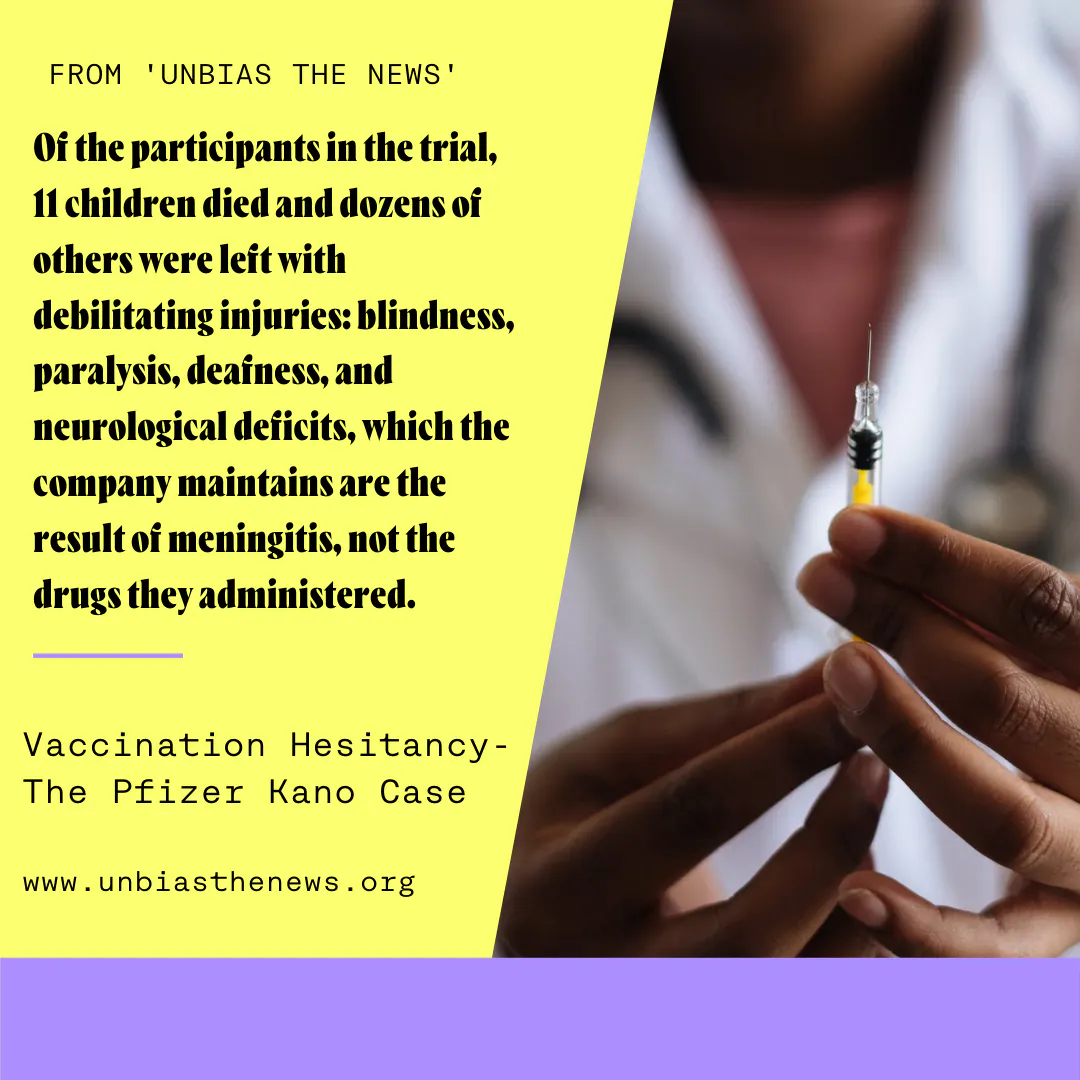
Dear friends,
Today we are proud to be launching the first of many new stories for Unbias the News. We bring you "Vaccine Hesitancy - The Pfizer Kano Case (Opens in a new window)," by authors Mahdi Garba and Modupe Abidakun, edited by Mercy Abang and illustrated by Antoine Bouraly. The story investigates how a 1996 Pfizer drug trial and its outcomes and aftermath is linked to the current COVID-19 vaccination boycott in communities like Kano State: Vaccine hesitancy does not only apply to situations where vaccine uptake is low because of poor availability but also because of distrust in big pharma - based on experience.

Read the story (Opens in a new window)
The reason this story resonated with us from the beginning is that our remote global team has seen how the COVID-19 pandemic has exacerbated inequalities and division. One key division is between the "haves" and "have nots"- those who do, and don't have access to a vaccine. But this division is further split into "will" and "will nots" - those who will take the vaccine, and those who have doubts (so-called "vaccine hesitancy.")
In some of the countries our editorial team resides in, governments are rolling out the red-carpet to persuade hesitant citizens to get vaxxed, with incentives ranging from scholarships to sports tickets. In these countries, conspiracy theories are thriving and political orientation can determine whether or not you think the vaccine is safe.
But there are a number of other countries where reasons to distrust global health initiatives come not only from conspiracies but from history. These are often developing countries with a history of colonization, where pharmaceutical companies have taken advantage of lax regulations or enforcement as an opportunity to inexpensively test drugs that can make them billions. Such cases have been recorded in countries like Egypt (Opens in a new window), Cameroon (Opens in a new window) and India (Opens in a new window) in addition to Nigeria. In a situation like a global pandemic, the health of people in one country are intimately tied with those around the world. Thus, the fight against vaccine hesitancy is a crucial cross-border issue. But when we fail to recognize that people in developing countries have different reasons for safety concerns, based on a history of unethical practices by some of the same companies now issuing vaccines, then we do a disservice to us all. Is transparency one of the keys to fighting vaccine inequality?

Vaccine Hesitancy - The Pfizer Kano Case (Opens in a new window)
This is the first of many stories we will publish at Unbias the News that will offer a local perspective on issues with cross-border relevance, and aim to offer context and nuance to help our readers connect the dots on the pressing issues of our times.
If you'd like to support our mission and enable more stories from underrepresented journalists, please consider becoming a member today (Opens in a new window)!
Best regards,

Tina Lee, Editor-in-Chief
Let's unbias the news!


